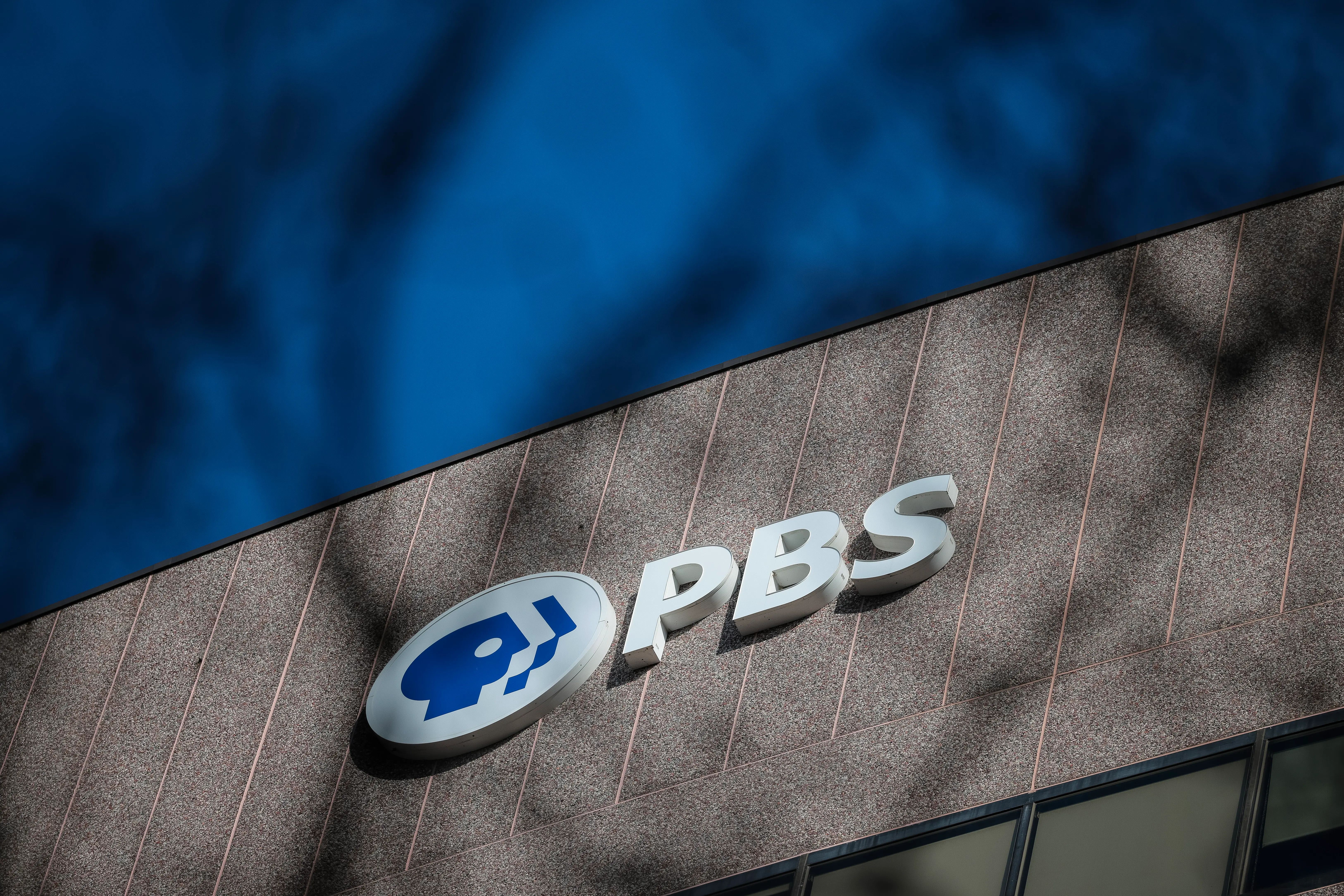CPB to shut down in 2026, ending 50 Years of PBS and NPR
-
 A sign for the Public Broadcasting Service (PBS) is seen on its building headquarters (Photo by Kayla Bartkowski/Getty Images)
A sign for the Public Broadcasting Service (PBS) is seen on its building headquarters (Photo by Kayla Bartkowski/Getty Images)In January 2026, the Corporation for Public Broadcasting (CPB) will complete the winding down of operations after Congress voted in mid-2025 to eliminate more than $1.1 billion in federal funding. CPB, established in 1967, has served as the primary conduit for distributing government‐allocated funds to the network of local PBS and NPR member stations.
While national PBS and NPR programming receive most of their funding from non‐government sources, many local stations depend heavily on CPB support.
The shutdown threatens to create gaps in news coverage, educational programming, and emergency alerts, especially in rural and underserved communities.
As CPB phases out by January 2026, local broadcasters face a dramatic revenue shortfall. PBS and NPR have vowed to continue national service, but millions of Americans may lose access to trusted local content.
The phrase “PBS shutting down” reflects public concern over what could feel like a collapse of public television at the community level, even if national operations persist.
What is the CPB and its role?
The Corporation for Public Broadcasting, created by Congress in 1967, is a nonprofit funded almost entirely through federal appropriations.
CPB does not produce programming itself but distributes funds to over 1,500 local public television and radio stations, mostly PBS and NPR affiliates.
In fiscal year 2025, its budget of approximately $535 million supported local grants, system support, and content acquisition, with schools, hospitals, and community broadcasters relying heavily on those funds.
Why is PBS shutting down?
It’s important to clarify: PBS shutting down refers largely to the loss of funding for local stations, not the national PBS network.
In mid‑2025, Congress rescinded $1.1 billion set aside for CPB in a broad rescission package pushed by the Trump administration, citing alleged bias and fiscal concerns.
As a result, CPB announced most staff would be terminated by September 30, 2025, with only a small transition team staying on until January 2026 to close financial obligations and music‑royalty arrangements.
With CPB defunded, local stations, some of which rely on federal dollars for 25%–50% of their budget, face severe disruption or closure.
The impact on NPR and Public Broadcasting
Though NPR and PBS national services are largely funded through listener support, corporate donations, and foundations, the loss of CPB removes critical infrastructure support for local stations.
NPR receives about 1% of its funding from the federal government, while PBS affiliates average around 16% from that source.
Local stations in rural and underserved areas could shut down, reducing emergency alert capacity, in-depth local reporting, and educational outreach.
As WPSU's station manager, Isabel Reinert explained to WHY News, as cited in their report dated August 1, 2025:
“The federal funding they facilitated has not only helped sustain our core operations but also our educational outreach and community engagement efforts. We are deeply grateful for CPB’s partnership.”
NPR CEO Katherine Maher called the cuts a threat to critical public information, while PBS CEO Paula Kerger warned of devastating consequences for local broadcasters.
NPR has sued the Trump administration, arguing that the executive order halting CPB funding violates the First Amendment.
What comes next?
1) Station consolidations or closures: Many smaller outlets may cease operations without replacement funding.
2) Shift toward private support: Local broadcasters will intensify fundraising campaigns, but private philanthropy may not fill the gap in lower-income regions.
3) Legal and public advocacy: NPR, PBS, and public media advocates continue to challenge the cuts in court and lobby for restored appropriations
4) National programming likely continues, though the on-the-ground diversity and local relevance of content may shrink sharply.
Conclusion
While national PBS and NPR remain operational, the loss of CPB funding means local public media are under threat, leading many to ask if PBS shutting down is imminent.
In reality, the phrase reflects a looming crisis for local stations rather than the shuttering of programming networks.
CPB’s shutdown by January 2026 marks a watershed moment for public broadcasting: the first time federal backing has been withdrawn entirely after nearly six decades of support.
The outcome remains uncertain for local stations, community journalism, and educational media, even as national outlets pledge resilience.
Stay tuned for more updates.
TOPICS: PBS, Donald Trump, CPB shutting down, NPR
- Who are Henry Kissinger’s children? All about Elizabeth and David Kissinger amid PBS documentary release
- When will The American Revolution air? Release date and more details explored
- Who is Mychal Threets? Reading Rainbow returns with new host 20 years after final episode
- Unforgotten Season 6 Premiere Ending Explained: How Ram’s shocking return ties into the Cooper Murder Case